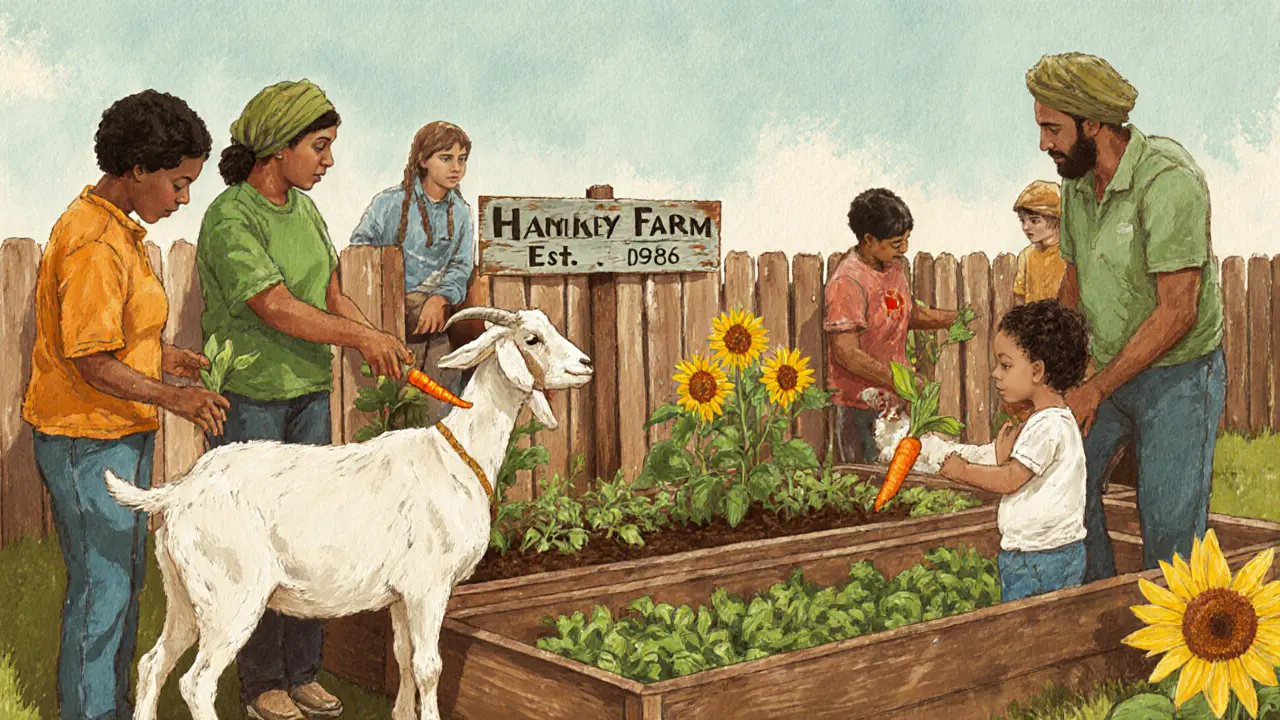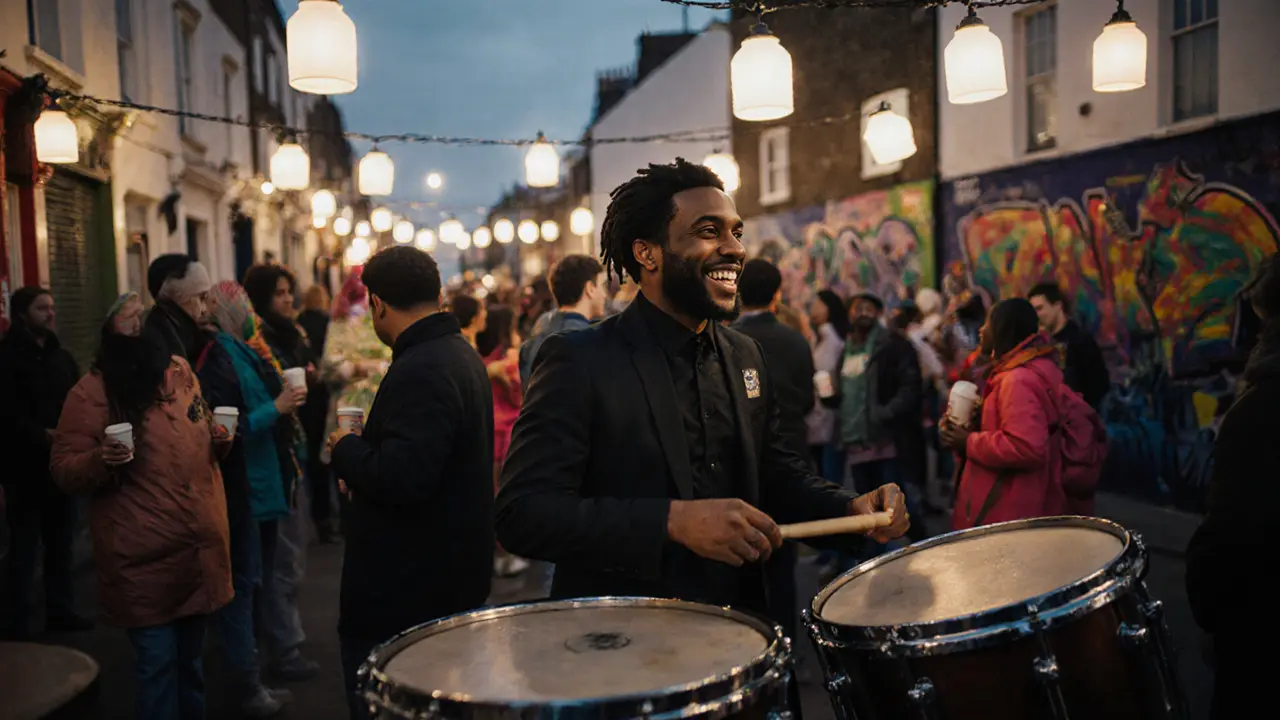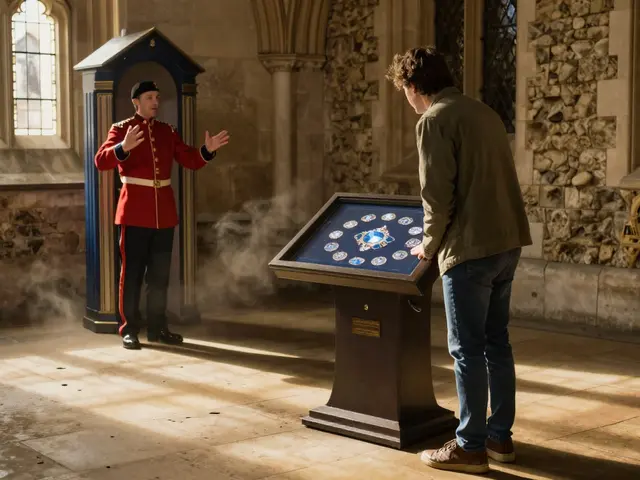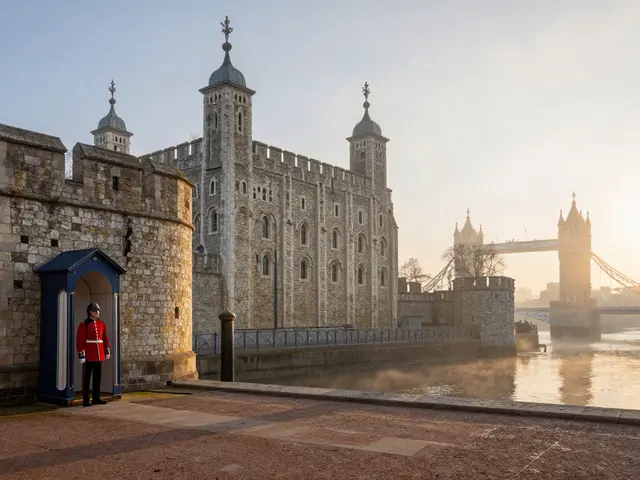London isn’t just a city of red buses and double-deckers-it’s a living archive of global cultures, centuries of change, and quiet rituals that shape everyday life. If you’ve ever walked past the British Museum on a Sunday and felt the weight of history in the air, or sat in a quiet corner of a Camden pub listening to a folk singer strumming a tune from Cornwall, you’ve already had a cultural experience. But most people in London miss the deeper ones. They see the Tower of London, snap a selfie at Buckingham Palace, and call it a day. That’s tourism. Cultural experiences are different. They don’t ask for a ticket. They ask for presence.
What Cultural Experiences Really Mean in London
Cultural experiences aren’t about checking off attractions. They’re about touching something real-the smell of fresh bread from a Polish bakery in Brixton, the rhythm of a drum circle in Peckham Rye Park on a Saturday afternoon, or the way a Sikh temple in Southall opens its doors at dawn to serve free langar to anyone, no questions asked. These aren’t tourist traps. They’re community rituals, passed down and kept alive by people who live here.
Think about the Notting Hill Carnival. It’s not just a parade with costumes. It started in 1966 as a response to racial tension, born from Caribbean migrants who used music and dance to claim space in a city that didn’t always welcome them. Today, it’s Europe’s largest street festival. To truly experience it, don’t just show up on Sunday. Go early on Saturday morning. Talk to the steel pan players setting up. Ask how long they’ve been doing it. You’ll hear stories about grandparents who came over on the Windrush. That’s cultural depth. That’s purposeful travel-right here in your own city.
Where to Find Authentic Cultural Moments in London
Most Londoners don’t realize how close these moments are. You don’t need to fly to Bali or Kyoto to find meaning. Start locally.
- Brick Lane on a Friday night: It’s not just about curry houses. Walk past the closed shops and notice the Bengali families gathering outside the mosque after evening prayers. The air smells of cumin and chai. Children play cricket on the pavement. This isn’t a scene from a travel blog-it’s daily life.
- The Hackney City Farm: On weekends, volunteers from Somali, Vietnamese, and Jamaican communities tend to goats, chickens, and vegetable plots. You can help harvest kale or feed pigs. No booking needed. Just show up. The farm is run by people who’ve lived in London for 40 years, and they’ll tell you stories about how the land used to be a market garden for East End families in the 1920s.
- St. Pancras Churchyard at dusk: No one goes here. It’s quiet. The gravestones are worn with names from the 1800s-Irish laborers, German immigrants, Jewish tailors. You’ll find handwritten notes tucked under stones, left by descendants who came to remember. It’s not on any guidebook. But it’s one of the most honest places in London.
These aren’t hidden gems. They’re forgotten spaces where culture isn’t performed for visitors-it’s lived.
Why Purposeful Travel Changes You
When you travel with purpose, you stop being a spectator. You become a participant. In 2024, a study by the University of the Arts London found that Londoners who regularly engaged in local cultural rituals-like attending a Welsh choir performance in Islington or joining a Chinese New Year dragon dance in Chinatown-reported 37% higher levels of belonging than those who only visited museums.
It’s not about learning facts. It’s about feeling connected. Imagine this: you’re in a small room in the V&A Museum, watching a master weaver from the Isle of Skye hand-weave a tartan pattern using a loom from 1812. You ask her how she learned. She says, "My grandmother taught me. I didn’t go to school for it. I just watched." That moment-quiet, unpolished, real-sticks with you longer than any audio guide.
That’s the difference. Cultural experiences don’t give you souvenirs. They give you stories. And those stories become part of your identity.

How to Start Your Cultural Journey in London
You don’t need a budget or a passport. You need curiosity and a willingness to be uncomfortable.
- Visit a place you’ve never been: Pick a postcode you don’t know. Take the Tube to Barking. Walk around. Find the Nigerian market on Barking Road. Talk to the woman selling plantain chips. Ask what she misses most about home.
- Go to a community event, not a festival: The Royal Albert Hall has concerts. But the East London Mosque holds free Friday evening talks on Islamic art. The St. Mary’s Church in Walthamstow hosts a monthly Polish poetry reading. These aren’t advertised on Instagram. Ask at the local library.
- Volunteer for a cultural project: The London Mosaic Project pairs volunteers with elderly immigrants to record their life stories. You’ll get tea, a conversation, and a memory you didn’t know you needed.
- Learn one local tradition: Try making a Christmas pudding the way your neighbor does-using black treacle from a 1950s recipe. Or join the London Morris Dancers in April. They meet every Tuesday at a pub in Hampstead. No experience needed. Just wear flat shoes.
The Real Cost of Missing Cultural Experiences
London is changing fast. New developments erase old pubs. Chain cafes replace family-run bakeries. The city is becoming a theme park for tourists, not a home for people.
When we stop engaging with the quiet, everyday culture around us, we lose more than traditions. We lose understanding. We stop seeing the person behind the accent, the history behind the food, the pain behind the song.
There’s a reason the Southbank Centre’s Poetry Parnassus event in 2012 brought poets from 204 nations to London. Not because it was fancy. But because poetry, in any language, is how people say: "I am here. I matter."

What Londoners Are Doing Right
Some are already doing this. In Lewisham, a group of teenagers started a project called "My London, My Story"-recording oral histories from elders in their neighborhood. One 82-year-old woman told them how she walked from Stepney to Camden in 1951 to find work, carrying her only dress in a suitcase. The kids turned it into a short film. It’s on YouTube. No sponsors. No filters. Just truth.
At the Southwark Playhouse, a play called "The Bus Stop" features real conversations between passengers on the 171 bus from Peckham to Waterloo. The script was written from audio recordings made over six months. People cry watching it. Not because it’s dramatic. Because it’s true.
These aren’t exceptions. They’re examples. And they’re happening in every borough.
Final Thought: You Don’t Need to Leave
You don’t need to book a flight to Marrakech or Kyoto to find meaning. The most powerful cultural experiences are already here-in the quiet corners of your own city. The man who sells you coffee in Brixton might have fled Syria five years ago. The woman who runs the bookshop in Camden might have learned to read in a refugee camp. The boy who plays football in the park after school might be the grandson of a Welsh miner.
Cultural travel isn’t about distance. It’s about depth. It’s about listening when someone says, "This is how we did it back home." It’s about showing up, not just snapping a photo. It’s about realizing that London’s soul isn’t in its landmarks-it’s in the people who keep showing up, day after day, making it theirs.
Start tomorrow. Walk down a street you’ve never taken. Say hello. Ask a question. Stay awhile. That’s how you travel with purpose-in London, and everywhere else.
What’s the difference between tourism and cultural experiences in London?
Tourism in London means visiting the Tower Bridge, taking a photo at Big Ben, or riding the London Eye. Cultural experiences mean sitting with a family in a Southall temple, helping harvest vegetables at Hackney City Farm, or listening to a Polish grandmother tell stories in a Brixton pub. One is observed. The other is lived.
Do I need to spend money to have a cultural experience in London?
No. Many of the richest cultural moments in London cost nothing. Visit a churchyard like St. Pancras, attend a free community poetry night, join a Morris dance practice, or sit in a mosque during langar service. The value isn’t in the price tag-it’s in the connection.
Where can I find local cultural events that aren’t advertised online?
Check local libraries, community centers, and noticeboards in corner shops. Many events-like Welsh choir rehearsals in Islington or Bengali storytelling circles in Tower Hamlets-are shared by word of mouth. Ask the librarian, the shopkeeper, or the bus driver. They know.
Is it okay to join a cultural event if I’m not from that background?
Yes, as long as you go with respect, not curiosity. Don’t take photos without asking. Don’t treat it like a performance. Ask questions. Listen more than you speak. Most communities welcome outsiders who show genuine interest-not tourists looking for a "unique" Instagram post.
How can I make cultural experiences part of my routine in London?
Pick one new cultural activity each month. Attend a Sikh langar once. Join a local walking tour led by a retired dockworker. Learn to make a Cornish pasty from a neighbor. Small, consistent steps build deeper understanding than one big trip ever could.
Next time you feel like you need to escape London, remember: the most powerful journeys don’t require a train ticket. They just require you to look up, listen close, and stay awhile.



